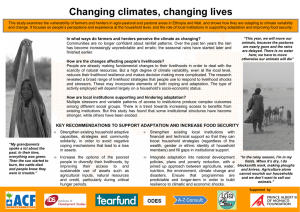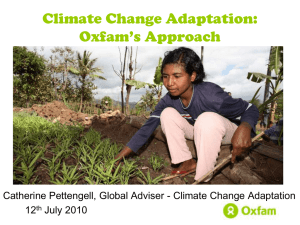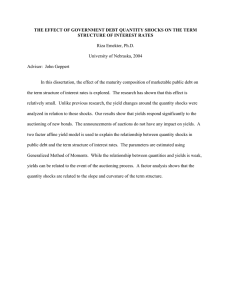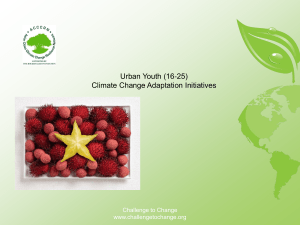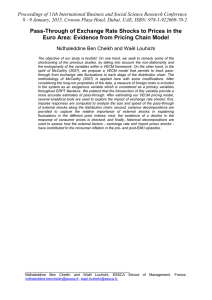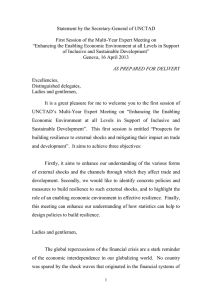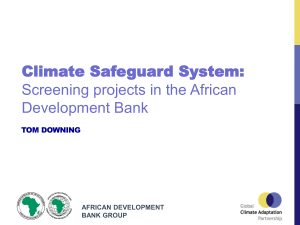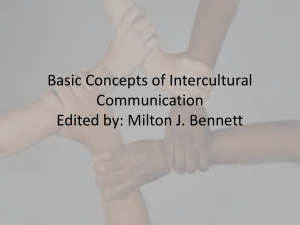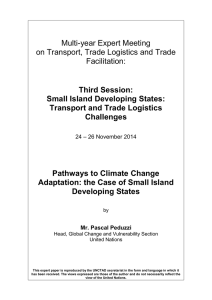Duncan Green Complexity and SIDS 2014
advertisement
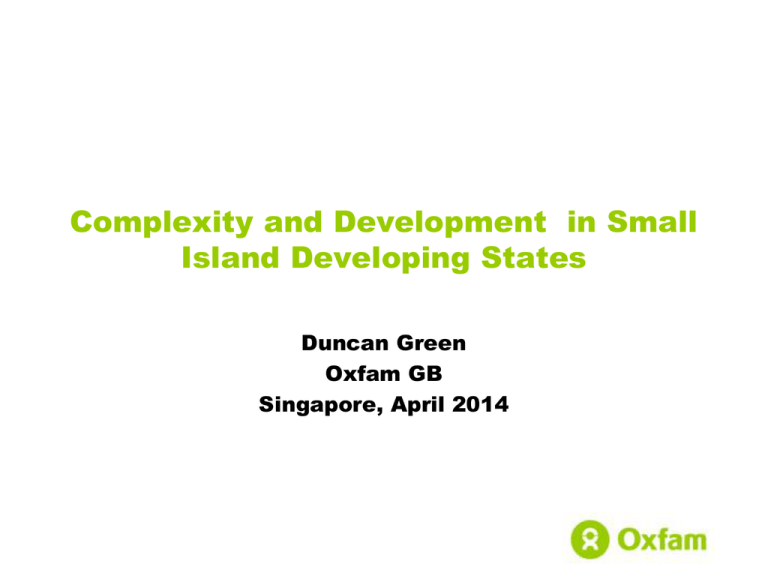
Complexity and Development in Small Island Developing States Duncan Green Oxfam GB Singapore, April 2014 ‘I think the next century will be the century of complexity’ Professor Stephen Hawking, 2000 This is what complexity looks like Simple v Complicated v Complex What’s this got to do with Planning? Some systems are more or less linear But many are not And SIDS are special (see Max Everest-Phillips paper) More vulnerable to shocks – – – – commodity prices climate lower diversity Import dependence esp food Short on skilled specialists Premium on leadership Denser networks (internally) “…Small island developing States (SIDS) have their own peculiar vulnerabilities and characteristics, so that the difficulties they face in the pursuit of sustainable development are particularly severe and complex….” UN Sustainable Development Knowledge Platform Planning pros and cons For Allocating $ Building common goals and approaches Evaluating performance against the plan Accountability Against Missing new windows of opportunity Weakens feedback loops to outside world Delusions of control Leads to lying An Adaptive Approach combines planning and improvisation Plan for capacity, improvise for response Enabling Environment Sensing Responding Enabling Environment Equip people to experiment and respond to events – Rights – Access to Information Political Leadership – Compelling narrative – Norms and moral messaging – Steering through shocks Building Resilience – Tackling ‘risk dumping’ and inequality – ‘Sowing diversity’ Sensing Fast feedback – Consultative systems – Sentinel sites and Prairie Dogs Positive Deviance – What good stuff is already happening? Failing forwards Results for grown-ups (counting what counts; put more L in your MEL) Responding Shocks as opportunities (red button system) Problem-Driven Iterative Adaptation Hybrids and best fit, not cookie cutters Venture Capitalist multiple start-ups (e.g. via trust funds) No regrets solutions Trial and error and Rules of Thumb, not Best Practice and Analysis Paralysis What Kinds of People are Needed? ‘We should move from being people who know the answers to people who know what questions to ask.’ – Ben Ramalingam Embeddedness as a virtue Beyond specialists (surfers and networkers) – Convene others (including off-island) – Crowd sourcing – Encourage experimentation, learning and adaptation Who else is thinking along these lines? Thinking and Working Politically coalition USAID – ‘10 Principles for Engaging Local Systems’ DFID – Testing complexity tools in Nigeria and DRC Harvard Kennedy School – Developing ‘Problem Driven Iterative Adaptation’ approaches And Oxfam? ‘How Change Happens’ = core competency Understanding the system before you intervene (power analysis, stakeholder mapping, history) Increased focus on influencing, innovation and knowledge Shocks as opportunities Resilience in climate change adaptation and humanitarian response Results agenda: counting what counts And Oxfam? Understand the system: Power analysis Implement, evaluate and adapt How might Change Happen? Intervention: Select change strategies Thanks. And please stay in touch via Twitter (@fp2p) or the blog (http://www.oxfamblogs.org/fp2p/)
